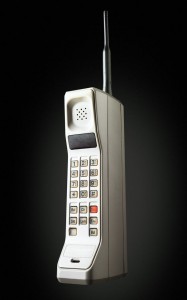The NAB and the RIAA are busy cooking a deal for radio stations to pay music royalties to performers. To make things appear better for Radio stations, the deal includes a scheme to put an FM analog radio into all cellphones by law.
Radio stations have paid royalties to composers for playing music on the air, but not to the performers. This is because radio has traditionally been a great way for performers to promote their music. That logic is no longer so firm, now that websites, streaming services and music appliances compete with radio for the music listener’s ears.
The NAB initially responded to the calls for radio to pay performance royalties by labeling the royalties as a “tax”. This didn’t get much traction with Congress who saw through the disingenuous claim. It might have been that the record labels had a better lobby than the NAB.
A number of big broadcasters finally came to the conclusion that stonewalling the royalty tsunami was not going to work, so they sat down to get the best deal they could.
The crux of the draft is that broadcasters will pay royalties a lower rate than webcasters and other distributors, and to sweeten the deal, they tossed in an additional wrinkle: Require FM radios in every cellphone.
This kind of protectionist ploy never works out in the end. There are a raft of reasons why this is a BAD IDEA.
- First and Foremost – AM Radio gets no cellphone radio – AM music stations pay the royalties, but get no sweetener.
- The deal is for FM Analog radios – Not Digital radios – effectively crippling deployment of HD Radio
- The cellphone buyer has to pay for an FM radio raising the cost of the cellphone
- The cellphone has to have an FM radio even if the phone has only a tiny speaker or no headphone jack
- Tiny FM radios without a headphone connected have terrible sensitivity, giving the listener a bad experience with FM Radio
- Cellphones will have the cheapest FM radio possible giving the listener an even worse FM Radio experience.
The first two factors are critically detrimental to broadcasting. The balance of the problems set up radio for a bad user experience, driving listeners to more reliable and satisfying choices.
All AM broadcasters and broadcasters who have invested in HD Radio need to let the NAB know that they think that this is a BAD BARGAIN for radio, and let your Congressmen know that this kind of protectionist scheme is not in radio’s long term interest.

